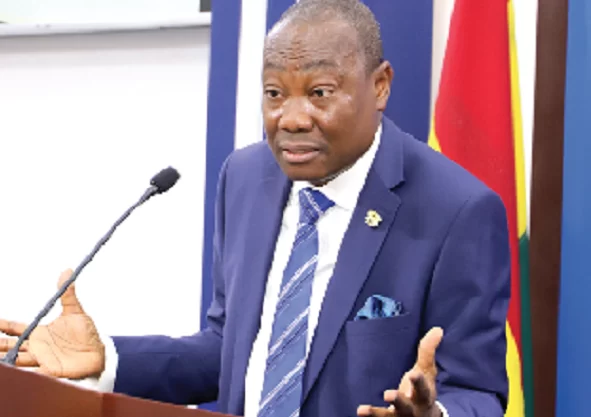Martin Ayisi, the Chief Executive Officer of the Minerals Commission, has addressed the growing calls for a total ban on mining in forest reserves as a measure to combat illegal mining, commonly known as galamsey. As the government plans to revoke the Environmental Protection (Mining in Forest Reserves) Regulations, 2023 (L.I. 2462), there has been increased scrutiny on mining activities in designated red zones—areas where all forms of mining are prohibited due to their ecological sensitivity. The government’s intention to revoke LI 2462 aligns with its broader strategy aimed at intensifying enforcement against illegal mining activities that threaten water bodies and protected areas.
In his perspective, Ayisi champions the idea of allowing certain types of mining within forest reserves, particularly underground mining. He argues that under controlled conditions, this form of mining can be sustainable and might provide a viable compromise between environmental conservation and the economic benefits derived from mining. His suggestion emphasizes the need for a nuanced approach rather than a blanket ban that might overlook the potential advantages and the possibility of responsible mining practices in certain contexts. Ayisi reflects on the complexities of the mining debate, suggesting that there are scenarios where regulated underground mining could coexist with environmental protections.
The impending revocation of the regulations has sparked significant discussion, highlighting the delicate balance between environmental conservation and economic activity. Critics of the government’s approach assert that the current policies need to be more robust to effectively tackle the rampant illegal mining that threatens both ecosystems and community health. They fear that removing regulatory barriers could exacerbate the situation, allowing for further encroachment into sensitive forest areas and the degradation of natural resources. Ayisi’s proposition to permit some mining activities may offer a more practical framework, enabling stakeholders to explore responsible mining initiatives while still prioritizing environmental safeguards.
Furthermore, the ongoing illegal mining crisis reflects deeper socio-economic issues, including poverty and lack of alternative livelihoods in mining communities. Many residents turn to galamsey as a means of survival due to the absence of viable employment opportunities. Therefore, Ayisi’s support for underground mining could be seen as a pathway to provide structured and regulated job opportunities, alleviating economic hardships while addressing environmental concerns. This aspect of the mining debate underscores the importance of integrating socio-economic strategies with environmental governance in order to create a comprehensive, long-term solution to the challenges posed by illegal mining.
Ayisi’s comparison of the mining debate to the contentious issue of abortion highlights the polarized nature of discussions surrounding natural resource management and environmental ethics. Just as people hold divergent views on abortion based on moral or religious beliefs, stakeholders in the mining sector often have fundamentally different perspectives on the acceptability of mining activities in forest reserves. This divergence complicates the crafting of policies that seek to address both environmental concerns and economic needs, as the competing interests can lead to impasses that hinder effective governance.
In conclusion, while the government’s push to revoke mining regulations in forest reserves is aimed at combating illegal operations, Ayisi’s call for an allowance for specific types of mining, particularly underground mining, reflects an effort to seek a middle ground. This approach emphasizes the necessity for tailored solutions that consider both environmental protection and the socio-economic realities facing local communities. By fostering dialogue and exploring structured mining options, stakeholders can work towards sustainable management of forest resources, balancing ecological preservation with economic opportunities. The challenge remains in developing coherent policies that can effectively navigate the intricate relationships between these often conflicting priorities.














